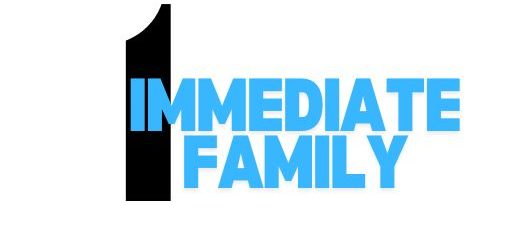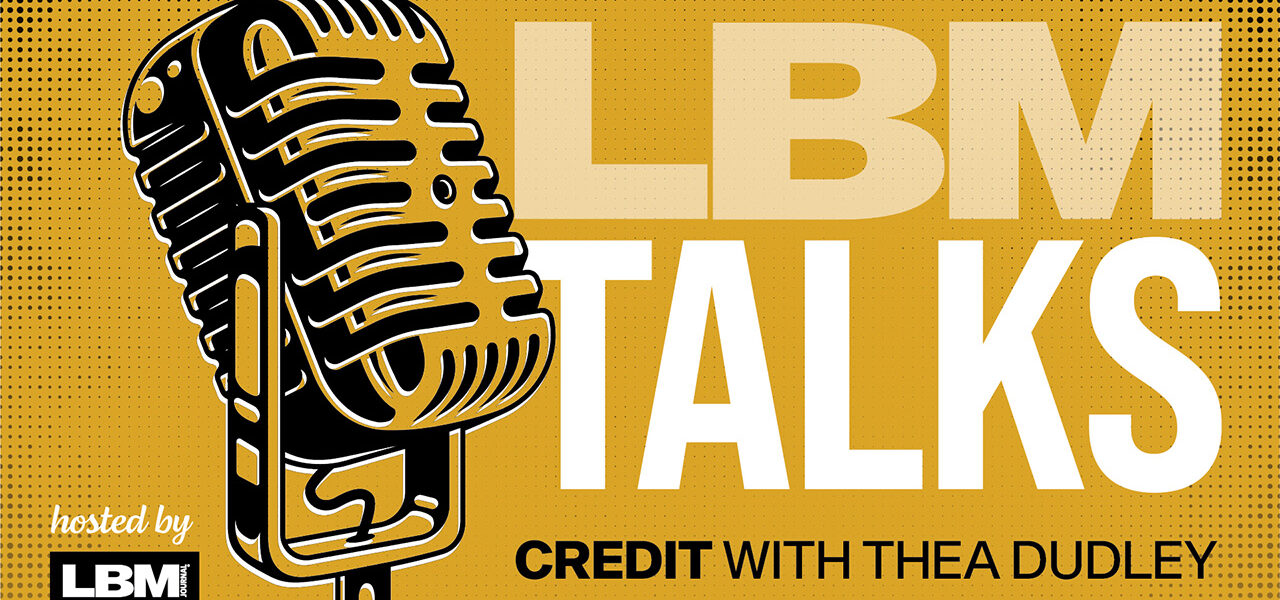“LBM Talks” hosts top professionals from different sectors of the lumber and building material industry to share their expertise, with a heavy emphasis on practical, tactical strategies to help you serve your markets and grow your business.
Join LBM Talks host, Thea Dudley, as she brings her razor-sharp expertise to dissect trends, regulatory changes, and offers real-world advice for credit professionals. Cash flow is a great way to know if your business is over or underperforming. In this episode, Thea shares five reasons your cash flow might suck and five ways to improve it. These include solutions for both credit managers and business owners.
Prefer to read about it instead? Take a peek at the transcript below for Episode 9: 5 Reasons Your Cash Flow Sucks & How to Fix it
(Editor’s note: Transcript is AI-generated and may include some errors.)
“Okay, welcome back to another episode of LBM Talks: Credit. This is the place to come for news, tips and techniques, practical trade credit advice in the LBM and construction space. Thea Dudley here, also known as the Credit Overlord, and I am your host as we jump into today’s subject, five reasons your cash flow sucks and how to change it. And this goes for every link in the LBM chain, manufacturers, distributors, that’s both one and two step, contractors, specialty and specialty and sub.
Lack of cash flow is one of the biggest reasons businesses fail. Well, that alongside poor management and partnerships, I think one in 500 partnerships actually succeed. I have only known one partnership that has done it well and successfully. Let’s make sure we’re all on the same page about cash flow. So to clarify, there’s cash and there’s cash flow. Cash is what you have sitting in the bank. Cash flow is how the money is coming in and out of the company. So money coming in is collecting money going out, is you spending or paying bills. If it’s coming in and going out about the same rate, then you’re probably okay. But you have more money going out than coming in, you’re not okay. If you’re scrambling to decide what you’re paying, you’re not okay.
I get to have these conversations a lot at companies, and I’ve been doing it for about 20 years in those back offices, mostly because I wanted to get my company paid, and you truly do want to help your customers grow. So when you’re having these conversations with your customers, maybe a little kinder than the one we’re having here today, but you’re teaching them how to run their business, they got to be humble enough to want your help, but it’s all in your presentation. What I usually hear is, but Thea, I’m making profit. I have I have assets, I have accounts receivable. Those are accounting concepts, some buzz words. Those don’t pay bills. The job may be profitable on paper, but how do you know?
Unless you’re really running the numbers, and you may have accounts receivable, and you may be waiting to collect them, but neither of those things are actually cash flow. You can’t pay bills with them in their current state. I can just see that conversation. Hey, Thea, this is earmarked for you. You get to have all of this as soon as I get it collected. That’s yours. That’s your baby all the way, yeah, but before we dive in, none of this is relevant if a customer or you or a customer can’t admit that they have a problem. So one of the questions I always ask is, if you’re delaying your company, filing your company taxes late, with all your suppliers juggling who gets paid this month, struggling to make payroll, honey, your cash flow sucks. Just admit it. Making ends meet should not be part of your daily business plan.
Now, the reasons we’re going to go over are relevant. Whether you are a two person company or 500 it’s all the same. It’s just different scales. So let’s dive into five reasons your cash flow sucks and how to change it. Reason number one, not treating the entire order to cash process as an entire company focus. Everyone in your company should be aware of how you go to market, from sales to your back office. Everyone should know your processes, how you get paid. It’s not enough to sell it. You got to get the money in the door related to their paycheck, and the light bulb goes off, you know, Hey, is your billing Correct? Would you pay these things at home if somebody sent you inaccurate billing, if they were late with it, if they were like, well, you know, if my mortgage company let me slide for three months. I would be sliding like it was my job. Is your billing Correct? Was it on time? Did you follow up on the job or the order? Did you eliminate any issues or potential issues, and by potential issues, I mean eliminating the reasons that someone has to not pay. You don’t give people reasons not to pay you did sales clearly communicate what was expected and how payment is handled. The sooner you get the money in the door, the sooner we can start this whole process over.
So the number one way to fix this, educate and train everyone in your company on how your billing and collections work and what to expect when everybody understands clearly that money turns over much quicker. Number two, not having a credit collections policy. This is a common mistake in small to mid-sized companies, and a lot of times in some of your customers and their construction firms, they start out small, and as they grow, they don’t take the time to document it. Huge mistake leads to confusion. When you put an account on hold, when you file a lien, when you preserve lien rights. Use of joint checks. When is it outsourced to collections? When do we even start collecting? Does your sales team and accounting team know what to expect on that the past due accounts? If you don’t clearly define it, people don’t understand it, and then it’s always. Surprise to them. You want everybody rowing that boat in the same direction.
So how to fix it? Write down a quick and dirty set of guidelines. It doesn’t have to be a thesis. It doesn’t have to be this giant 500 page book. Just cover the basics, keep the money flowing, adjust it, refine it as you go. You’d be surprised. It’s a lot easier, and you probably have policies that you don’t even know that were actual policies. You just didn’t document them. But I guarantee you, you have the basis already there. You just have to jot it down.
Number three, not staying on top of your receivables. In other words, when is it past due? Is that one day, seven days, 10 days, 30 days, or do you just call when you have a cash flow issue? It’s like, oh, I’m out of money. Who’s past due? We’re going to call them. What I hear mostly from customers is, look, I, you know, I don’t want to call people. I don’t want to look like I need the money. I don’t want to offend them. I’ve worked for a lot of big companies, and I never had a problem calling and asking for money. That’s how we pay our bills. That’s how we cash flow. And put that shoe on the other foot. If you committed to, I don’t know, putting a roof on a house, or putting up the trusses, or whatever it is, you know, whatever specifics, would it be okay with them? If you’re like, hey, we’re just going to deliver, like, a shingle at a time and see how that goes. You know, how would that work out? Train your customers how to treat you. Don’t be afraid to call. And you’re not begging. This is your money. Follow up on the commitments. If you tell me Thursday, you mail me a check and I don’t have it by Tuesday, you’re getting a call. We had a deal. The way I explain it to contractors is you’ve already had to pay for labor, and now I’m asking you for material. I’m going to teach you how to have those conversations with your customers. That’s where getting in front of your customer really comes in handy. As a dealer, I delivered stuff to you. You’ve heard me say this before we had a deal, pony up, and if you’re not collecting before your bills are due, you had to lay that out as well. So quick fix for that call early and call often, make it not okay to not pay you offer options. Snail mail is so antiquated and just pitfalls all over the place. Credit cards, ACH. Check by phone. You know your payment portal, send a link. There’s so many good options. If you don’t have a lock box with your bank.
If that’s the next step that you can do that you can’t commit to a portal and you can’t you just can’t bring yourself consider one checks are in your account a little bit faster. It’s not ideal, but it’s better than just mail, not protecting your accounts receivables, not checking out your customers prior to agreeing to send out material or do work, not utilizing mechanics liens and bond laws to your advantages, or levering joint checks, or reading contracts and really working those and crossing stuff out, those are all things that are going to work against you. You have to be on top of that, be proactive. If you’re going to sell to somebody check them out. You can’t walk into any store and take something out without either paying for it or being approved for credit. This is not a new concept. Check out who you’re doing business with and keep checking up on them. Things change. So how to fix this? Start utilizing your options early look at how to protect each sale. You have to ask yourself, if this deal went south, what do I have to collect it? Is it going to put me out of business? It’ll make it a hell of a lot easier to implement prelims and joint checks and credit application processing and count review processes and checking items off of contracts, if you put it in those terms, are any of these things going to put me out of business? There’s your answer.
Number five, poor billing practices, not getting your billing done the exact same day or the very next day is another way to hijack your cash flow. If you’re invoicing late a week, couple weeks miss a deadline for submittals when you’re giving customers additional time to pay you. Do you give customers time to find fault with you? Hey, if it’s not important to you to get my billing correct and to me on time, it is not important to me to pay you on time. You’re giving your customers reasons and a ton of additional time to pay you. Because if you don’t, you may put Yeah, I know that this should have been billed on the first, but I billed it on the 15th, but I marked it the first. So when they get it, that’s not how life works. When I get that, I’m going to stamp it or I’m going to it’s going to come into my system through the flow, and it’s going to be marked that day. I don’t care what date you put on it, I’m taking 30 days. You’re going to hijack your cash flow that way. Why should I worry about you getting paid on time. Besides, if you’re this bad about getting your invoices done, you probably aren’t going to notice when I pay you really, really late, because you don’t appear to be paying attention to many details over there. So I think I’m pretty golden. How to fix this invoice daily, send statements on a monthly basis. Utilize those as just another methodology for getting your bill in front of people, email invoices and statements, saves both time and money, and nobody wants to be that guy licking an envelope. It’s really boring, and snail mail again, not the best way to get stuff there.
Now, a little bonus tip, not growing your back office at the rate you’re growing your sales rate. People in the right role, you can continue to get sale after sale after sale. But if you don’t have back office people to help push that through, people who are billing on time, who are watching your AR, who are reading the contracts, who are collecting your money, you’re going to be underwater on that. So how to fix it, get a credit professional to collect your money, have professional back office people, bookkeeper, accountant, for accounting and invoicing. It’s not that I don’t appreciate bookkeepers, but there’s a difference between a bookkeeper and an accountant. Know what you need for your business, and just because your spouse, your kid, your friend’s kid, needed a job doesn’t mean they’re going to be a good fit for whatever role you have, whether it’s invoicing, whether it’s collecting money, whether it’s doing your books, these are big things. You should be spending a little bit of time to qualify somebody and hire the right people. Just because they were an office manager doesn’t necessarily mean they’ll have the skills your business needs to be able to professionally collect. To be an accountant back office is your cash flow? Who’s billing, who’s tracking, who’s collecting? How is all that happening? Start treating your collections like it is important. Stop treating it like it’s an afterthought. You will find your cash flow flows a lot faster. This wraps up another episode of LBM Talks: Credit. Thanks for joining me, Thea Dudley, your host, as we discuss practical advice, insights, challenges in trade. Credit for LBMers, be sure to never miss an episode with us. We are on Apple, Spotify, Amazon Music, and we come out every other Tuesday. I’m glad you joined us see you next time, and until then, keep watching your cash flow.”





